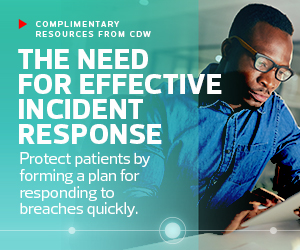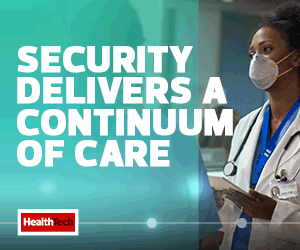Why Should Healthcare Organizations Consider a Security Partner?
To determine whether a healthcare organization should hire a cybersecurity partner rather than handling incident response itself, IT leaders should ask a few questions: Do the organization’s regulators or insurance carriers require them to show evidence that an incident response plan exists and tabletop exercises have been conducted? Does the plan include outcomes and participation of all affected departments and levels of management? Did the organization resolve all challenges discovered during its last assessment or exercise? Has the organization accounted for all technology in the plan, including those that affect patient outcomes? Does the incident response plan line up with the business continuity plan? Is it the best plan to bring systems back online after a major incident?
If IT leadership answers yes to their insurance carrier requiring evidence but no to any of the other questions, then they should consider hiring a security partner to help them with the planning.
Healthcare organizations should look for a partner with the depth of knowledge and experience to help craft a plan, strengthen security posture and implement security tools and strategies. They should choose a partner that understands security threats and exploitable vulnerabilities, with professionals who are equipped to handle evolving cyber risk and threats to patient data.
RELATED: Learn 8 ways to create a strong security culture in healthcare.
An experienced security professional will know how to assess an environment and quickly provide healthcare IT leadership with a roadmap for improving security posture. A good security partner will even orchestrate the implementation and offer managed services. The partner should understand the healthcare industry and perhaps even employ security experts who formerly worked for healthcare entities — that’s a great benefit to the customer. The partner’s track record is also important to consider. A partner should be able to demonstrate that it’s been successful in its approaches, orchestration, services and strategies. IT decision-makers don’t want to experiment with security strategies. They want a predictable and favorable outcome.
A healthcare organization that handles security internally may be unaware of emerging technologies — and emerging vulnerabilities. A good security partner can therefore be a wise investment, saving the organization time and money. A security partner’s expertise can help to mitigate the risk of costly cyberthreats, such as ransomware, and minimize downtime in the event of a successful compromise. A healthcare organization may also be unable to support a large internal security staff, which is another good reason to hire a security partner.
How Can Health IT Leaders Foster a Successful Security Partnership?
To ensure that a security partnership is successful, healthcare organizations should start by having a conversation and holding the partner accountable. The partner should be able to explain its approach, resources and how it can improve the healthcare organization’s security posture. IT leadership also should consider having an assessment done by the partner to learn from its security knowledge and expertise.
To make sure the communication goes both ways, healthcare organizations should share their initiatives and desired outcomes, and allow the partner to build a suitable and attainable security roadmap for the organization’s environment.
Click the banner below for more HealthTech content on security and incident response planning.














